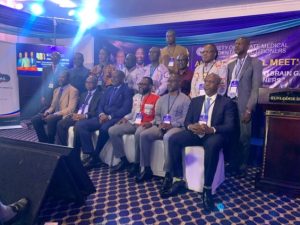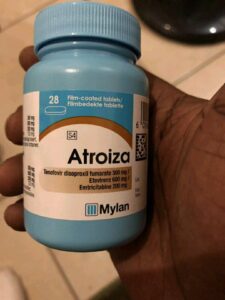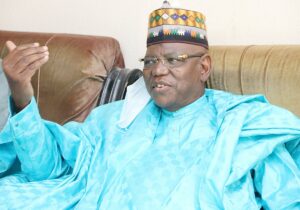Reducing high malaria deaths in infants, pregnant women — Features — The Guardian Nigeria News – Nigeria and World News

Malaria is a major public health concern and Nigeria accounts for nearly 27 per cent of the global malaria burden and 31 per cent of malaria deaths, according to the World Health Organisation (WHO) World Malaria report.
While children under five years of age are the most vulnerable group, accounting for 67 per cent of all malaria deaths, pregnant women are particularly at higher risk of contracting the disease because pregnancy reduces a woman’s immunity to malaria, making her more susceptible to malaria infection and increasing the risk of illness, severe anemia, and death.
For the developing foetus, maternal malaria increases the risk of spontaneous abortion, stillbirth, premature delivery, and low birth weight.
The risk of transmission exists throughout the country, all year round. However, the incidence of malaria is highest in the northern parts of the country.
In response to the malaria situation, the National Malaria Elimination Programmme (NMEP) initiated the High Burden High Impact (HBHI) approach with technical support from the WHO and other partners to address the malaria situation in the country.
The current 2021–2025 National Malaria Strategic Plan (NMSP) is based on the vision of achieving a malaria-free Nigeria to reduce malaria morbidity to less than 10 per cent parasite prevalence and mortality attributable to malaria to less than 50 deaths per 1,000 by 2025.
The revised National Guidelines for the Diagnosis, Treatment, and Prevention of Malaria recommend prompt presentation of fever cases at health facilities.
Fever is a key symptom of malaria and other acute infections in children and an important entry point for case management for malaria. Malaria fevers require prompt and effective treatment to prevent malaria morbidity and mortality.
Despite policies that recommend parasitological testing before treatment for malaria, presumptive treatment remains widespread as many Nigerians obtain antimalarial drugs from for-profit drug vendors—formal and informal medicine shops—but little is known about the quality of malaria care services provided at these shops.
The National Coordinator, Civil Society in Malaria Control Immunization and Nutrition (ACOMIN), Mr Ayo Ipinmoye, told The Guardian that malaria, a preventable and treatable disease spread by the female anopheles mosquito is still a leading cause of illness and death in many countries including Nigeria.
He said that there is a need to continually review the strategies that are being employed to fight malaria, to bridge the gaps that undermine the tireless efforts being made by the government and non-state actors.
Ipinmoye stated that some initiatives that have been deployed to fight malaria in Nigeria include but are not limited to the provision of free Long-Lasting Insecticide-treated Nets (LLINs), provision of free malaria test kits and medicines at some health facilities and Community-led Monitoring to ensure accountability in malaria interventions.
He noted that with the increase in malaria morbidity and mortality, it has become necessary to investigate some of the existing gaps that are yet to be adequately resolved; one major area that needs improvement in malaria intervention is the aspect of gender balance.
Ipinmoye observed that malaria in pregnancy has significant public health implications for the mother, the unborn child and the newborn child.
He observed that pregnant women infected with malaria usually develop more severe symptoms and outcomes which include miscarriage, premature delivery, low birth weight or the child and maternal anemia adding that the infected women also have a higher risk of maternal death.
Ipinmoye stated that the severity of malaria in pregnancy is owing to the changes in the women’s immune systems during pregnancy and the presence of a new organ (the placenta) with new places for the parasite to bind.
He further stressed the need for people to go for lab tests before treating malaria. However available data shows that a low percentage of persons with fever sought care within 24 hours.
According to Nigeria Malaria Indicator Survey (NMIS) 2021, and the Nigeria Demographic and Health Survey (NDHS) 2018, among children who were reported to have had a fever the two weeks preceding household surveys, about 63 per cent and 46 per cent sought care.
In response to the malaria situation and to guide implementation, NMEP initiated the High Burden High Impact (HBHI) approach with technical support from the WHO and technical partners to address the malaria situation in Nigeria.
The current 2021–2025 NMSP is based on the vision of achieving a malaria-free Nigeria to reduce malaria morbidity to less than 10 per cent parasite prevalence and mortality attributable to malaria to less than 50 deaths per 1,000 by 2025.
NMEP National Coordinator, Dr Godwin Ntadom, explained that malaria infection increases during the rainy season because of the tendency of mosquitoes to multiply and bite people.
He said the NMEP, among other interventions, distributes insecticide-treated mosquito nets, while working to ensure that children and pregnant women, who form the bulk of the most vulnerable population to malaria, receive adequate treatment.
Ntadom clarified that mosquito nets were not just distributed only during their campaigns, but rather, it was a routine exercise. “When pregnant women deliver in the facility, they get free nets in most parts of the country,” he said.
He noted that NMEP is also implementing seasonal malaria chemo-preventive treatment for children under five, especially in the northern parts of Nigeria where malaria was prevalent.
Ntadom said that NMEP is working to reduce malaria prevalence in the country to approximately 10 per cent by 2025.
The national coordinator, who urged Nigerians to buy antimalarial drugs that have artemisinin-based combination therapy (ACT) for effective malaria treatment, said: “There are some malaria medicines that are monotherapy and some are combination therapy.
“When you see medicines like artemisinin, unfortunately, it is a monotherapy. It must be ACT, there are two medicines combined. Anytime you see that it is just one medicine, don’t buy it, it cannot clear all the parasites.”
In a presentation titled, “Improving Care-Seeking Behaviour for Malaria Control: The Media as an Ally.” NMEP Desk Officer, MrsOwoya Samuel, advised that any child with a fever should go to the health facility for testing and treatment without delay.
According to her, there is a need for a constant supply of Sulfadoxine Pyrimethamine (SP) to health facilities to reduce stock-out rates. “Any child with a fever should go to the health facility for testing and treatment without delay and we need to provide local populations with insights into the dangers of delay in seeking care when a child has a fever,” Samuel added.
She stressed the need for pregnant women to register early for Antenatal Care (ANC) to take the drug Sulfadoxine-pyrimethamine (SP) at the ANC clinic to prevent malaria.
Samuel noted that significant progress against malaria in pregnancy has been seen in recent years, due to a cost-effective, preventive treatment for pregnant women known as IPTp.
IPTp is an intervention where pregnant women are given SP at 13 weeks and one-month intervals until delivery to prevent malaria during pregnancy. Women receive SP during their antenatal care visits under directly observed therapy.
She stated that over the past decade, the percentage of pregnant women in Nigeria who received at least three doses of SP decreased from 21 per cent in 2015, NMIS to 17per cent in 2018 NDHS. However, in 2021 NMIS, a slight increase of 31per cent was observed. Also, IPTp1 and IPTp2 uptake have increased.
Hence, he advised pregnant women to seek prompt care by registering early for ANC to ensure zero malaria.
She called for improved sensitisation of pregnant women for ANC and IPT.








